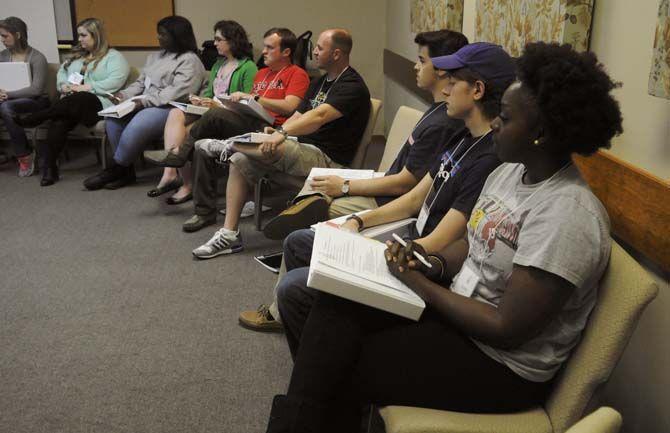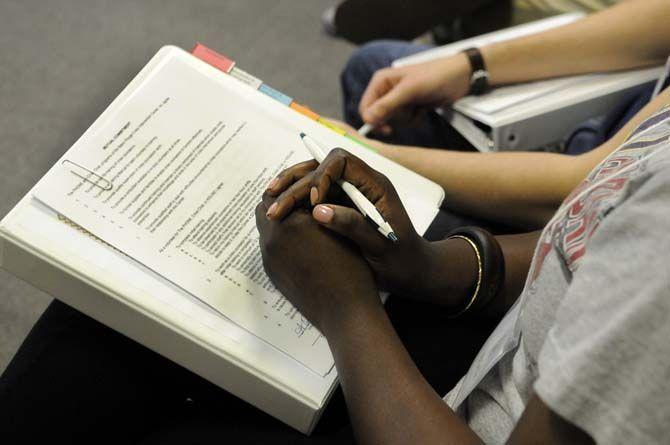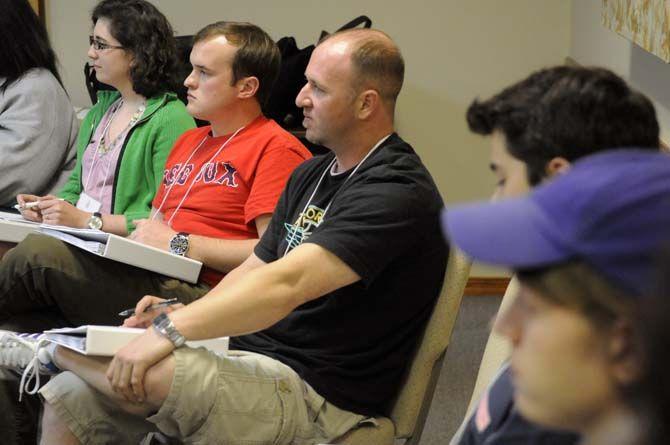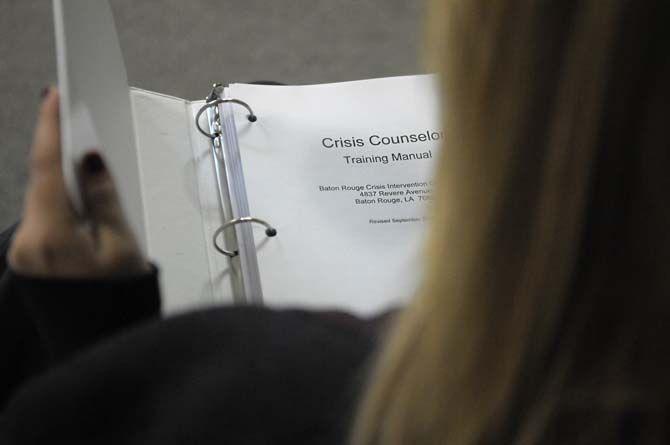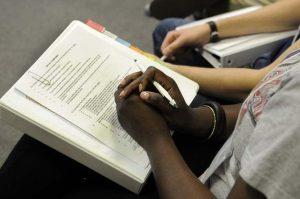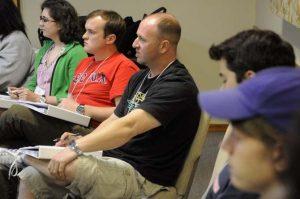When she was 15, communication studies and political science senior Allie Galvan lost her 17-year-old brother to suicide.
In 1970, the University lost six students to suicide, one of whom was then-Student Government President Art Ensminger.
Out of that tragedy came The PHONE, a student-run crisis hotline headquartered on the University’s campus. And out of Galvan’s loss came a desire to help people like her brother and their grieving loved ones.
“I know what it’s like to go through something like that,” Galvan said. “If I can help at least one person in any way to feel like they don’t have to do that, or so their family doesn’t have to go through that, that would mean a lot.”
Since the ’70s, The PHONE has evolved into the nationally certified Baton Rouge Crisis Intervention Center, which still utilizes students as its main source of phone-line and crisis chat operators.
Galvan began training Thursday for a nine-week commitment to the crisis center.
Her training includes 30 hours in an online course and 30 hours in a classroom, working with instructors to simulate actual calls and situations.
“We’re doing hands-on exercises so they can really get a feel for what its like when they get on the line,” said Haley Shows, clinical supervisor and training lead at the crisis center. “When they come to us, its not lecture. They can actually practice the skills which they are learning.”
Galvan is a member of the center’s largest volunteer class.
Graduates of the class will join a team of volunteers who work weekly shifts on the 24-hour phone or online chat line.
“I think it’s really a testament to where we are in our society that people are still wanting to do this,” Shows said. “It just gives me such hope that people are still wanting to take their time to volunteer and help others.”
Though some college students may not feel they could be of help in a crisis situation, she said many of the callers are college-aged, and it can be helpful to match demographics.
Shows said when college students call in, it is beneficial for them to make a connection with someone who is their age or who has gone through similar situations.
“We do get a lot of college kids calling in or even coming in on chat,” Shows said. “It’s easier to have [volunteers] be relatable. They understand the stressors of what’s going on for them in college.”
Biology sophomore Anna Suydam, a volunteer with the center for almost a year, got involved because of her interest in psychology and neurology.
Working at the center helped Suydam put her problems in perspective.
“It’s actually my outlet,” Suydam said. “I go there for a shift and spend around three hours there, and it’s kind of the time out of my week that I can realize that my problems are a lot smaller than I think they are.”
Suydam said her experience has taught her how to be empathetic with others without letting their problems affect her, but there is one part of her work she can’t help but bring home with her — in a way, she’s become a counselor to her friends.
“We all joke about it,” Suydam said. “We have friends that would call us just to gossip, and you find yourself using the skills that they teach you in training to counsel them with their problems.”
In addition to the developing professionally, she said she has learned a lot about herself.
“Training was actually a really big growing experience for me. I’ve realized a lot in a professional sense,” Suydam said. “I’ve realized a lot of my potential for counseling and how I’d enjoy doing that in my future career.”
The center’s commitment to the University remains strong even after moving off campus, Shows said. From every student’s required fees, $2 helps fund the center, and there is an “LSU line” always available.
The LSU line is specifically for callers who identify themselves as University students at the beginning of their chat.
Shows said the center works with the School of Social Work, offering internship opportunities, and also with other areas of campus.
“We have a lot of people that are residential advisors who do this work to kind of strengthen their skills in that setting,” Shows said. “Some really want to do it because they want to go into this field, and we’re really the first company that will say, ‘We’ll take you under our wing.’”
Student counselors find solace in crisis center
January 29, 2015


